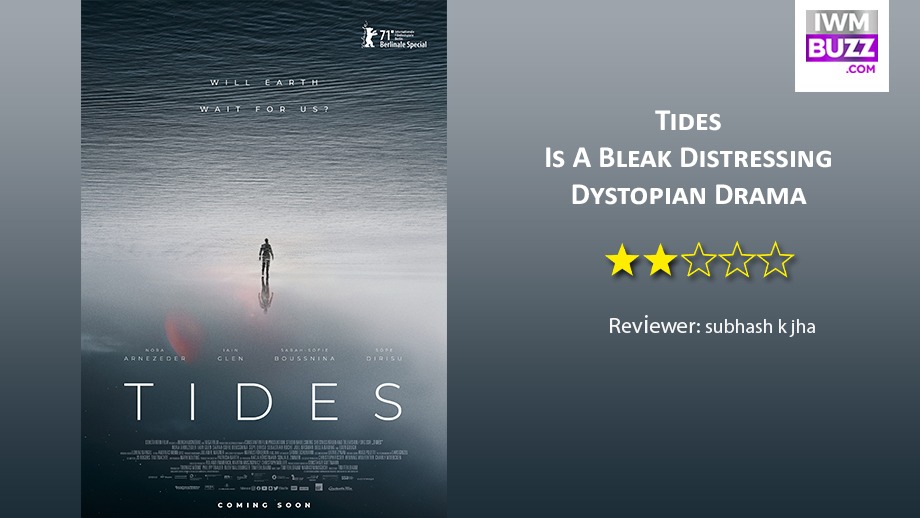Tides
Starring Nora Arnezeder, Iain Glen, Sarah-Sofie Boussnina
Directed by Tim Fehlbaum
Rating: **
A disquieting bleakness belches across this broadly-defined dystopian drama where nothing holds together. Mother Earth is angry. Civilization is more or less dead and the hero, actually the heroine,is an astronaut sent back to survey the survivors of civilization.
Obliquely and bleakly ,this Swiss-German production in English, suggests that we are hurling towards catastrophe.
Do we really need to be reminded of how close we are to destruction? I mean look at us. We’ve all become masked monkeys , avoiding all social interaction like the plague. Gosh, there is so much drama already happening all around us,do we need more of the same from our movies?
To its credit Tides(also known as The Colony) has its head firmly wrapped around the idea of dystopian destruction. Though the plot moves along a number of clearly defined episodes that seem to bear little resemblance to one another, the tides,so to speak, are clearly churning. The plot, though unfinished and inconclusive, does make its piercing point on a post-apocalypse universe where the stakes are not survival but extinction with dignity.
Nora Arnezeder as the protagonist Blake(bleak?) is every but the warrior survivor, as female astronaut with her nuts bolted tightly , she is hardheaded and prone to take flash-decisions that eventually pay off. Wisely the script(Tim Fehlbaum,Mariko Minoguchi) chooses to go with Nora’s instincts.She provides the much-needed anchor to the storytelling.
When we first see Blake she is held captive in a watery well. That watery soggy feeling never leaves the storytelling. Markus Förderer’s cinematography challenges us to embrace Blake’s bleakness as she trudges along through a trajectory of pain and acceptance where she must confront her past and her own father.There are no emotional meltdowns between father and daughter.
Not that Tides is bereft of an emotional bedrock. The bonding that grows between Blake and a young girl Maila(Bela Bading) is captivating in its economy of emotional expression. We don’t see them getting emotional with one another. Yet we can see that Blake has motherly affection towards Maila .The irony of Blake’s maternal instincts opening up in a film where the earth has become infertile is not lost.
Tides doesn’t lose its way in its maze of confounding future shocks. But it doesn’t quite know what to do with the heaving lurching mass of dystopian uncertainties that stare at us from a film that is unblinkingly gloomy.












